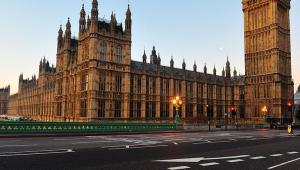Changes to constituency boundaries under the alternative vote and the Phil Woolas court case could significantly affect our parliamentary democracy
Westminster has suffered days of hot air, raised voices in committee rooms and skulduggery with parliamentary procedure. MPs are often accused of being self-obsessed, and the recent controversies about voting reform and Phil Woolas’ disqualification from Parliament seem to confirm this.
But, for once, the critics are wrong, for these two seemingly obscure debates are going to have a profound impact on our democracy.
First, there is the devilish but ultimately doomed plan by Lord Falconer, the former Labour lord chancellor, to blow the government’s electoral reform plans off course. He tried unsuccessfully to de-couple the plans for a referendum on the alternative vote from the coalition’s plans to reduce the number of MPs from 650 to 600.
He rightly argued that by blasting the Bill through both houses at high speed – so that the AV referendum can be held next May – the boundaries for the new constituencies will have to be redrawn quickly, and without local consultation. So some will, for example, straddle county lines, such as Devon and Cornwall, or cut coherent communities in half. Only a few existing constituencies would be protected. So why some, but not others?
Lord Falconer’s attempt to get the Bill declared hybrid – and so subject to long delays – failed in the Lords this week. Electoral reform will still be the subject of a referendum, which might of course be rejected (though I suspect it won’t be.)
The new constituencies with fewer MPs will happen, and sooner than many MPs realise. Several who thought they had a job for life will suddenly find that they don’t. The consequences of this, and indeed of AV if the referendum is won, will be momentous and will lead to a far bigger change in the composition of the Commons than we have known at previous elections. Some of the lazier MPs are likely to find their cosy berths disappear: the days of any candidate being elected just because they wear their party’s rosette will be over.
MPs are equally concerned about the implications of the legal judgment in the Phil Woolas affair. Woolas, the former immigration minister, was found guilty of telling lies about his Liberal Democrat opponent in election literature, and as a result the election will be re-run in Oldham East & Saddleworth. Woolas will not be allowed to stand for three years.
He was also kicked out of the Labour Party, and told by Labour’s deputy leader, Harriet Harman, that even if his appeal succeeds, there would be no way back for him. This prompted a furious meeting between Harman and Labour MPs, who felt that Woolas had been harshly treated.
Labour MPs point out that it’s a bit rich of the LibDems to complain about dirty tricks when they are known as real streetfighters in local campaigning. A couple of years ago, their guide to campaigning told candidates to ‘be wicked, act shamelessly, stir endlessly... don’t be afraid to exaggerate’. It was eventually withdrawn, but the truth is that candidates from all parties have made claims about their opponents that are pretty close to the line.
Woolas definitely crossed the line between what is acceptable and what is not. But several others are wondering whether their election literature might be looked at by the courts. During the court hearing, the judge demanded to see all the email correspondence between Phil Woolas and his constituency staff, including his agent Joseph Fitzpatrick. It was through this disclosure that it became clear to the court that Woolas’ team thought he was going to lose the election and decided to ‘damage’ his LibDem opponent. Most MPs and candidates assume their emails are private. That’s no longer the case.
Of course, MPs are concerned about their own futures, the privacy of their emails and their ability to mount attacks on their political opponents. That’s why there has been such sound and fury at Westminster this week. But we should all be interested in the changes that are coming: the conduct of elections and the composition of Parliament are going to be very different in future.
Jackie Ashley is a Guardian columnist and political interviewer










